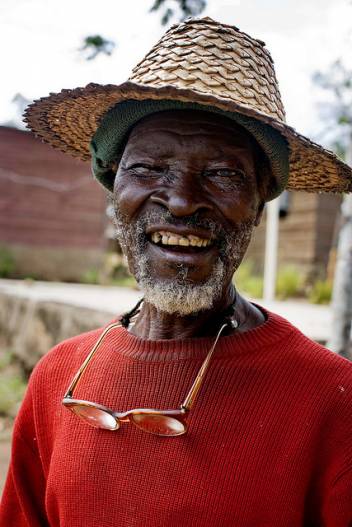The Millennium Development Goals Report 2012 launched this week, made no mention of global ageing. This is not surprising, since the existing MDG framework makes age group disaggregation impossible.
However, global ageing is one of the most fundamental issues of our time. Already there are more people over 60 than children under five. The proportion of older people in the developing world is rising at an unprecedented rate.
Include older people in policies
The Second World Assembly on Ageing in April 2002, called for action to include older people in development and halving the proportion of people living in extreme poverty by 2015.
 Sadly, very little progress has been made since then.
Sadly, very little progress has been made since then.
It is absolutely crucial that all future development policies, at international and national levels, respond to this mega trend.
HelpAge and its global network are working hard to ensure that any framework to succeed the MDGs is age-inclusive. Our hope is that older people are seen, heard and understood in the 2015 consultation processes.
Ageing and post-2015 agenda
Ageing was also mentioned as a global trend and challenge to which the post-2015 agenda should urgently respond, in the first report published by the UN System Task Team supporting the post-2015 agenda. The report states that:
“Overall progress in human development worldwide has contributed to dramatic reductions in mortality rates and an increase in longevity. As a result, the world population is ageing rapidly.
“By 2050, one in three persons living in developed countries, and one in five in what currently constitute developing countries, will be over 60 years of age. Declining and ageing populations are already putting large pressures on pension and health systems, especially in developed countries, but increasingly also in some developing countries.
“The challenges are manifold, including the needs to redesign pension systems so as to ensure economic security for all in old age while sustaining financial viability; to enhance health and longterm care services to keep ageing populations healthy and active; and to enhance opportunities for older persons to actively participate in society.”
We will continue to work with the UN, national governments and civil society to ensure that action is taken to support these promising words.
What we want
We have put forward the following recommendations for the post-2015 process to respond to the challenge of global ageing:
- The opportunities and challenges of global ageing should be central to the post 2015 agenda.
- Policies supporting the contributions of active, secure, resilient and healthy ageing populations must be supported and reflected in the outcomes of a post-2015 development framework.
- National social protection mechanisms for the poorest and most vulnerable, including regular income through social (non-contributory) pensions, and investment in primary healthcare systems are key to addressing poverty, protecting older people and creating opportunity.
What you can do
Download our Mainstreaming ageing into the post-2015 process policy brief.
Sign our Age Demands Action petition calling for a convention on older people’s rights.
